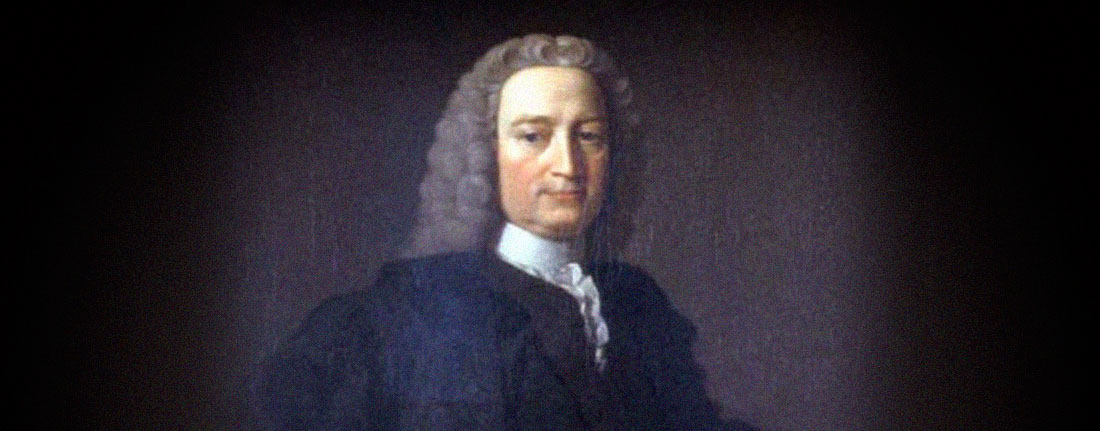
The Belfast-based historian and author Philip Orr took us into the life and work of one of the greatest and most influential thinkers of the 18th Century — Francis Hutcheson — through important and fundamental words of his writings.
In a dynamic and illustrating seminar celebrated as part of the Imagine! Festival of Ideas & Politics, Philip Orr suggested ways to seek ‘a politics of kindness’. The session was hosted by Denis Stewart, a member of the International Futures Forum and Chair of Voluntary Arts Ireland.
Francis Hutcheson (b. 8 Aug 1694 (Saintfield, Ireland), d. 1746 (Glasgow)) was a Scots-Irish philosopher, the son of a Presbyterian minister. Hutcheson studied philosophy, classics, and theology at the University of Glasgow (1710-16) and then founded a private academy in Dublin in 1719. In 1729, he returned to Glasgow as professor of moral philosophy, a position he held until his death. He is considered the father of the Scottish Enlightenment, taught the important figures of the century, (such as David Hume and Adam Smith), and exerted an enormous influence in America.
His thought was drawn in two fundamental books during the 1720s:
As Philip Orr highlighted, Hutcheson lived in the dark 18th century of the Illustration, where his contemporaries believed that the state of nature was egoism, self-esteem, self-interest, and depravity.
Contrary to Thomas Hobbes, Presbyterian theology, and Calvinists thoughts, Hutcheson states that man has a variety of internal senses, including a sense of beauty, morality, honour, and the ridiculous. Moral sense is the most important, and values instinctively the character of actions and affections, approving and disapproving them. The love and practice of virtue are soundly rooted in the human heart. In fact, virtue is a ‘natural disposition’ and human beings tend “to desire the happiness of any known sensitive nature”.
Hutcheson endeavoured to point out that we are “employed about the states of others”: “We work for our family, our friends, our colleagues … we like to think we are contributing to others and measure our own self-esteem by the benefits we bestow on those closest to us” and counselled against forming ‘rash opinions’ of ‘sects or nations’ whose opinions or aims seem to differ from our own.
“If we see such groups as selfish and evil then we will tend to act in such a manner that we must follow them into all extravagance and folly and inadvertent spectators will imagine some disposition in us, wholly useless and absolutely and directly evil”.
Also, a positive estimate of human nature is founded on his perceptions of the behaviour of children, against the inborn perversity and inherited sin of the Calvinist theology and Presbyterian definition. Kids possess an early sense of right and wrong, which evidences that moral sense is present within the mind of infants, and that belief was one of many contributions to the growth of new educational ideals during the Enlightenment period.
From the 1730s onwards, the Ulsterman was a key philosophical influence in an America that would soon be at war with the ‘mother country’. Hutcheson was a critic of all kinds of slavery and insisted on the ‘natural equality of all men’. He wrote, “No endowments, natural or acquired, can give a perfect right to assume power over others without their consent.”
Therefore, his writings have always sought to highlight that we are all “born with a view to the general good” and to offer the hope that there is great delight yet to be experienced when citizens contribute to ‘public love’ and justice. In the realm of moral philosophy, he assessed right and wrong in terms of the happiness afforded to human beings: “That action is best which procures the greatness happiness for the greatest numbers.” [Later adopted by Jeremy Bentham and his Utilitarian disciples, this dictum was to become a cornerstone of British government social policy.]
In our contemporary context, Philip Orr suggested that instead of the pursuit of happiness, we could search for well-being or health. The public love and the secret chain that links one to another could be the way to face the refugee movement as benevolence is our natural disposition.
In other words, the possibility to approach a ‘Politics of Kindness’.
The seminar concluded with a relaxed and enthusiastic chat between participants about how to apply those ideas into our daily life.
Bibliography:
The Ingenious Mr. Hutcheson. An essay on a neglected Scots-Irishman Francis Hutcheson, philosopher, by Philip Orr (Downpatrick, 2000)
The Secret Chain: Francis Hutcheson and Irish Dissent – A Political Legacy ~ Philip Orr
Towards a Flourishing Society, ed. Fergus O’Ferral, [http://www.siptu.ie/media/media_16112_en.pdf] (2012)
An Inquiry into the Original of Our Ideas of Beauty and Virtue in Two Treatises, Liberty Found (2004).
Written by Bárbara Orozco Díaz and first published on northernireland.foundation on 16 March 2016.